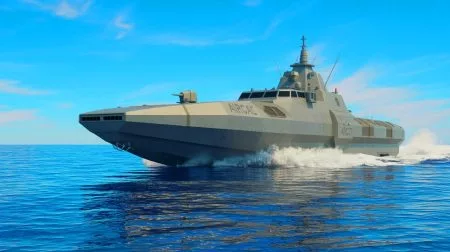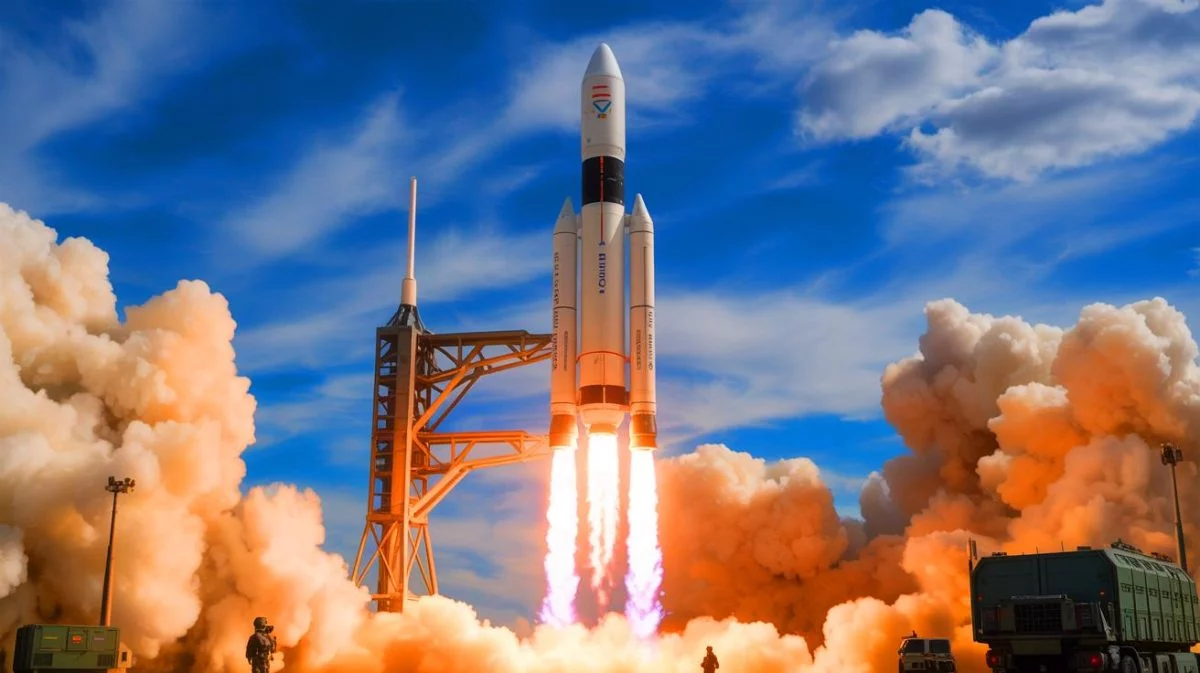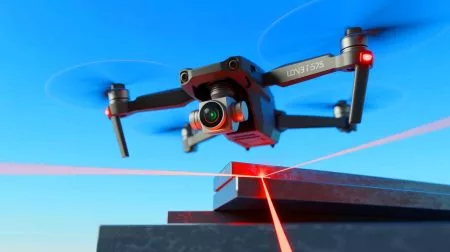| IN A NUTSHELL |
|
The United States Air Force is embarking on a groundbreaking journey to revolutionize global logistics through rocket technology. This initiative, known as Rocket Cargo, aims to transport up to 100 tons of cargo or personnel anywhere on Earth within just 90 minutes. This ambitious project is part of a larger program called Rocket Experimentation for Global Agile Logistics (REGAL). The potential for rapid deployment could significantly alter both military operations and humanitarian missions, offering a glimpse into the future of swift, global transport capabilities.
A Vision for Rapid Global Transport
The Rocket Cargo project represents a bold vision for the Air Force. The objective is to create a reusable transport rocket that can achieve suborbital trajectories, allowing it to reach any destination worldwide in under an hour and a half. This vision is not just about speed but also about the capacity to carry substantial loads, akin to a Globemaster III transport plane’s 77-ton capacity. Such a capability would transform how military and humanitarian missions are conducted, offering a new level of agility and responsiveness.
The Rocket Cargo initiative is more than just developing a large capacity rocket. It aims to establish a fully integrated logistical system comparable to existing military air transport operations. Imagine a scenario where a rocket delivers a Marine detachment or crucial relief supplies to a remote area faster than traditional air transport options, and at a similar cost. This capability could redefine strategic logistics, enabling rapid deployment under pressing circumstances.
Technological Challenges and Testing
Building a rocket with these capabilities requires overcoming significant technological challenges. The Air Force Research Laboratory (AFRL) has partnered with Rocket Lab USA to conduct preliminary tests. One of the key components of these tests is a survivability mission scheduled for 2026. This mission will utilize Rocket Lab’s Neutron medium-lift reusable rocket, which can carry a payload of 13 tons. The mission will simulate conditions similar to those a transport mission would face, providing crucial data for future vehicle development.
During the mission, telemetry will monitor various factors, including temperature, pressure, and acceleration forces. These factors are critical for validating mission models and ensuring safety, especially if human passengers are involved. Rockets intended to carry humans must adhere to strict safety standards, as even minor errors can have catastrophic consequences. The upcoming tests aim to address these challenges and pave the way for safe, reliable rocket-based logistics.
Partnerships and Strategic Implications
The collaboration between the AFRL and Rocket Lab USA highlights the strategic importance of the Rocket Cargo project. According to Sir Peter Beck, Rocket Lab’s founder and CEO, the Neutron rocket is poised to set new standards for performance, affordability, and reliability in medium launch operations. This partnership demonstrates the Department of Defense’s confidence in Rocket Lab’s capabilities and underscores the potential for advancing space logistics.
Beyond military applications, the Rocket Cargo project has implications for commercial and humanitarian efforts. The ability to deliver supplies quickly to disaster-stricken areas could significantly enhance relief efforts. Additionally, the commercial sector could benefit from faster, more flexible logistics solutions. The successful implementation of Rocket Cargo could establish a new paradigm for global transport, impacting various sectors and redefining expectations for logistics.
The Future of Rocket-Based Logistics
The Rocket Cargo project is an ambitious undertaking with the potential to reshape global logistics. However, numerous challenges remain, from technical hurdles to regulatory considerations. As testing progresses, the insights gained will be crucial in refining the technology and addressing safety concerns. The project’s success could lead to broader adoption of rocket-based logistics, influencing military strategy and commercial logistics alike.
As the Air Force continues to explore this innovative transport solution, questions remain about its long-term implications. How will the integration of rocket logistics influence global supply chains? What regulatory frameworks will be necessary to ensure safe and effective operations? The answers to these questions will shape the future of this revolutionary project and its potential to transform global logistics.
The Rocket Cargo initiative represents a significant leap forward in logistics technology, promising to deliver cargo around the world with unprecedented speed. As the project moves from testing to implementation, it raises crucial questions about the future of global transport. How will this technology impact military strategy, international logistics, and disaster response? The exploration of these possibilities will be key to understanding the broader impact of rocket-based logistics on a global scale.
Did you like it? 4.6/5 (22)







Wow, delivering cargo in under 90 minutes sounds like something from a sci-fi movie! 🚀
How will the Air Force ensure the safety of human passengers on these rocket trips?
I can’t even get my pizza delivered on time, but cargo around the world in 90 mins? Impressive!
What are the environmental impacts of launching rockets so frequently for cargo transport?
This project could revolutionize disaster response. Imagine how quickly aid could reach those in need! 🌍
Is this technology going to be available for commercial use, or is it strictly military?
Love the innovative approach. But what about the costs? Will it be as expensive as it sounds? 💸
How is Rocket Lab USA planning to tackle the technological challenges involved in this project?
Sounds great, but I hope they have a good plan for all the space debris this might create!